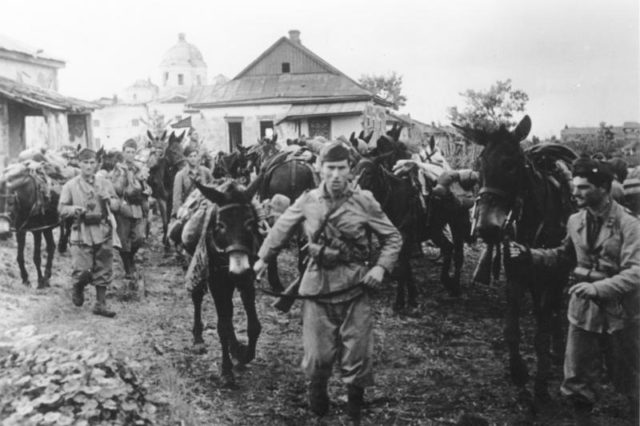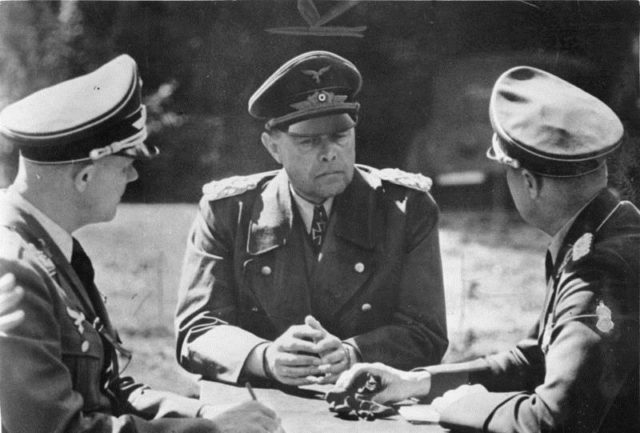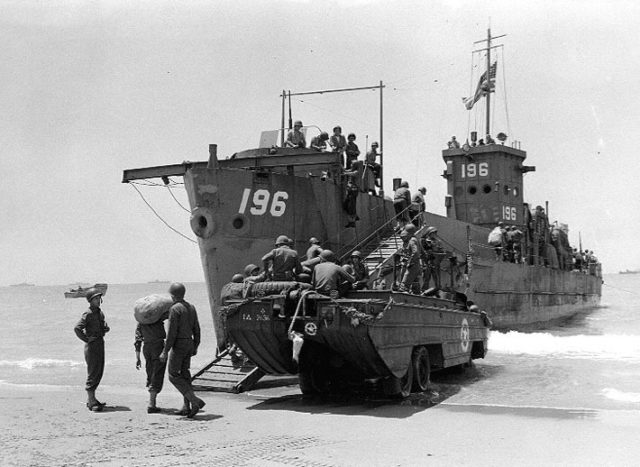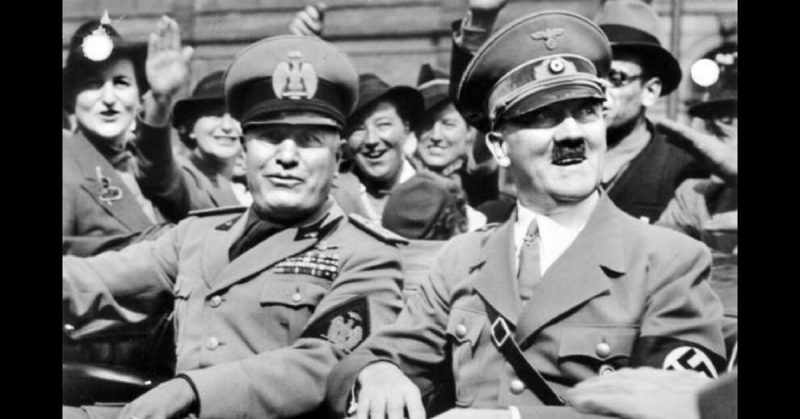Germany and Italy had the most powerful and outspoken far-right governments in inter-war Europe. They were the main Axis powers in Europe in WWII. Their ideologies – Nazism and Fascism – are often used interchangeably in modern conversation.
However, they had a very difficult relationship during the war.
A Slow Start
There was tension at the heart of the relationship between Hitler and Mussolini’s governments. Mussolini had come to power sooner and was in many ways the figurehead for the far right in Europe. Hitler’s Germany was a much more powerful nation, despite the limitations it was grappling with in the aftermath of the Versailles settlement. Mussolini eyed Hitler’s achievements with envy, while the Fuhrer quickly came to resent the ineffectiveness of his closest ally.
The difference in capability and boldness became apparent in 1940, during the invasion of France. Italy sat back while Germany swept across northern France, driving the British into the sea and smashing the French armies. Only when Italy was sure the fighting was almost over and saw an opportunity to seize land and glory, did she step in. Italian troops crossed the Alps into southern France, making limited inroads.

The Balkans
It was natural for Hitler to leave the Balkans for Italy to deal with. They were accessible for the Italians and the Germans were facing the far more powerful threats of Britain and Russia.
Jealous of Germany’s achievements, Italy headed east through Albania, which had already been annexed, and into Greece. The invasion was a fiasco. Ill prepared and equipped; the Italians were swiftly driven back by the Greeks, who advanced across the border and into Albania.
For the Germans, it was an embarrassment as well as a strategic setback. Greece was important in the control of Mediterranean supply routes. To see an Axis power defeated would be humiliating for an alliance built on strength and pride.
The Germans stepped in to rescue their faltering partners. The British aided the Greeks but were quickly driven out.
It set the tone for the rest of the war. The Germans had rescued an embarrassed and ineffective Italy.
Lack of Trust
Hitler sent Albert Kesselring, one of his most able commanders, to take control of German forces in the Mediterranean. Additional troops were transferred south with Kesselring.

Hitler no longer trusted Mussolini to get the job done. A proposed invasion of Malta, which could have been invaluable for control of the Mediterranean, was abandoned. One of the key reasons was because Hitler did not trust the Italians to play their part.
North Africa
Meanwhile, events in Greece were being replicated in North Africa. Eager to become a colonial power on a par with other European nations, Italian forces swept out of their colonies. Heading east, they launched an attack on Egypt, aiming to take the Suez Canal.
British and Commonwealth troops defended Egypt. The Italians soon faltered in the face of a superior enemy. Again, the Germans were forced to come to their rescue. Suez was vital to supply routes in the east. Its fate could not be left in the hands of the Italians.
The task was given to Erwin Rommel. Technically under Kesselring’s command, he frequently ignored orders from above, acting as a free agent. He led German and Italian troops in a difficult struggle that eventually ended in defeat as the Americans brought their resources and manpower to the fight.
Defending Sicily
Having taken North Africa, the Allies headed across the sea to southern Europe. The Italian island of Sicily was a natural jumping off point to reach the mainland. That was where their invasion began.
By now, relations between the German and Italian armies had descended from tension into utter dysfunction. Kesselring was unable to coordinate the defense of the island. Italian commanders issued orders contradicting him, creating chaos. Some Italian troops surrendered without firing a shot; forcing Kesselring to send in more Germans.
To no-one’s surprise, Sicily was quickly over-run.

A Revolution Within a War
Relations between Germany and Italy became even worse. Failure in war undermined Italian faith in Mussolini. As Allied forces crossed to the mainland, many Italians were eager to get out of the war.
Mussolini was overthrown in a palace coup and imprisoned. Marsha Badoglio refused to give Kesselring access to the former leader. The Italians approached the Allies in search of peace, as the Germans prepared to fight on alone in the peninsula.
A daring commando raid led by Otto Skorzeny rescued Mussolini from the ski resort in which he was being held. The Italian government was no longer on Germany’s side, but they had a leader to rally other Italians behind.
Italy Divided
So began the final phase of the relationship. The new Italian government made peace with the Allies and switched sides. Meanwhile, German troops and sympathetic Italians continued to fight the Allies.
Italy was divided in two. In the south, the government had rejected their domineering former partners. In the north, a puppet government under Mussolini supposedly continued the fight. In reality, northern Italy was occupied by the Germans. Kesselring conducted a fighting retreat in the face of the Allies.
Throughout the war, Italy had reached beyond its capabilities and had then been rescued by the Germans. It was no act of kindness. The Germans wanted the Italians on their side but did not trust them. Ultimately, it turned from paternalistic interventions to full-on occupation, until the Axis powers were finally defeated.
It had never been a healthy relationship. By the end, only bitterness remained.
Sources:
Ralph Bennett (1999), Behind the Battle: Intelligence in the War with Germany 1939-1945
Nigel Cawthorne (2004), Turning the Tide: Decisive Battles of the Second World War
John Keegan (1987), The Mask of Command
James Lucas (1996), Hitler’s Enforcers: Leaders of the German War Machine 1939-1945
David Rooney (1999), Military Mavericks: Extraordinary Men of Battle
